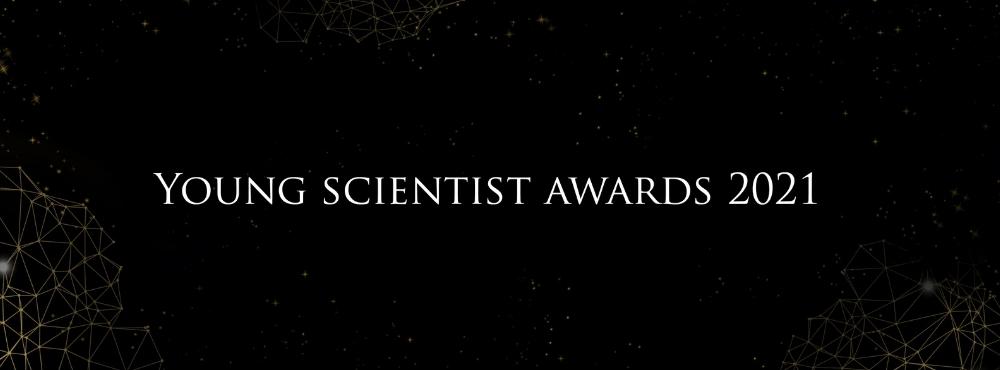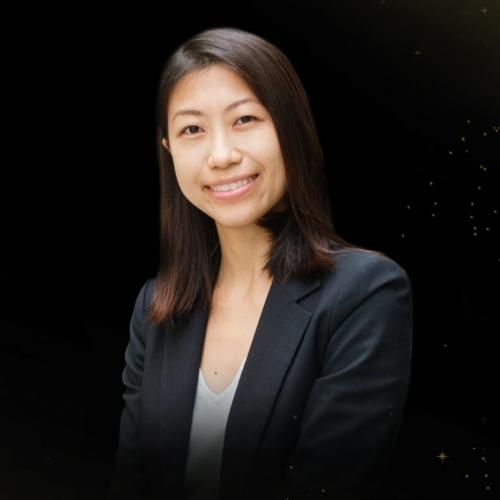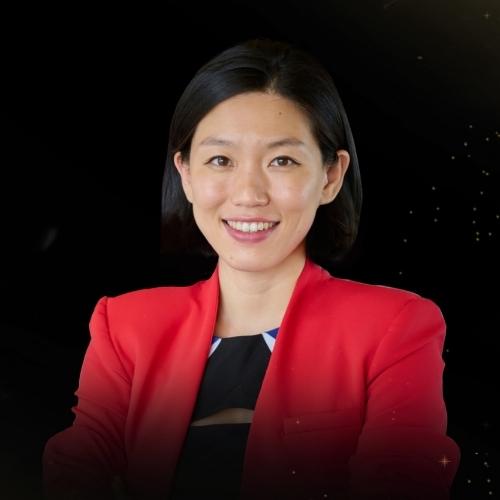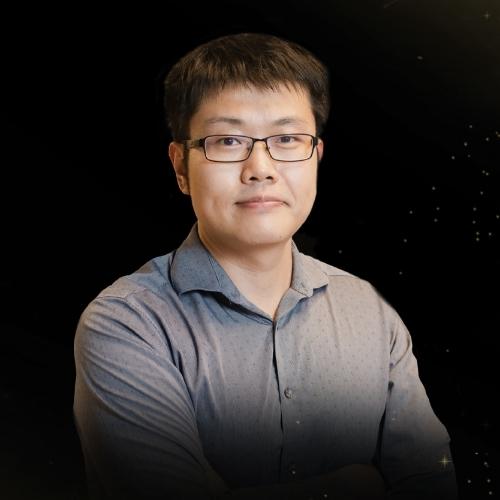Young Scientist Awards 2021

The Young Scientist Awards (YSA) recognises young researchers, aged 35 years and below, who are actively engaged in R&D in Singapore, and who have shown great potential to be world-class researchers in their fields of expertise. This award is administered by the Singapore National Academy of Science (SNAS) and supported by the Agency for Science, Technology and Research (A*STAR).
There are two categories of Awards, namely:
- Biological and Biomedical Sciences; and
- Physical, Information and Engineering Sciences.
Below are the YSA winners for 2021.
Biological & Biomedical Sciences
Dr Sarah Luo
Principal Investigator, Institute of Molecular and Cell Biology, A*STAR
Adjunct Assistant Professor, Department of Physiology, Yong Loo Lin School of Medicine, NUS
Physical, Information & Engineering Sciences category
Dr Yvonne Gao
Presidential Young Professor, Department of Physics, National University of Singapore
Principal Investigator, Centre for Quantum Technologies
Dr Zhang Hanwang
Assistant Professor, School of Computer Science and Engineering, NTU
YSA 2021 Ceremony HighlightsThree outstanding young individuals received the Young Scientist Award this year. |
Biological & Biomedical Sciences Category
Dr Sarah Luo
Principal Investigator, Institute of Molecular and Cell Biology, Agency for Science, Technology and Research
Adjunct Assistant Professor, Department of Physiology, National University of Singapore Yong Loo Lin School of Medicine
“For her research in the neural circuit underpinnings of appetite regulation”
Dr Luo’s research focuses on brain regulation of feeding behaviour and the implications of its impairment in metabolic disorders like obesity and diabetes. Her work brings together neuroscience and metabolic research, to understand how the brain and body interact to control whole body metabolism.
Dr Luo has discovered a novel region in the brain, the tuberal nucleus, that regulates feeding behaviour and uncovered its signalling pathway leading to food consumption. When this brain region was activated in mouse models, it led to increased food consumption even when mice were not hungry. Furthermore, together with Dr Luo’s colleagues at IMCB, they discovered the same brain region contributes to excessive feeding in defined environments. This pioneering research has challenged the existing notion that only two groups of neurons in the brain control feeding behaviour and demonstrated that environment also plays a part in regulating feeding. Dr Luo and her team are also working further to establish a link between this brain region and metabolic dysfunction in neurodegenerative disease, as many such diseases have a metabolic component and show feeding dysregulation symptoms. Further studies in understanding bidirectional communication between the brain and body could contribute new translational approaches to help patients affected by feeding dysregulation and metabolic disorders.
Dr Luo’s team is building up expertise and inter-RI collaborations under A*STAR’s Brain-Body Initiative, using multiomics approaches and advanced imaging to identify critical neural circuits, as well as uncovering their contributions to metabolic regulation and feeding behaviour. Dr Luo is also an Adjunct Assistant Professor at the Department of Physiology at NUS Yong Loo Lin School of Medicine, and collaborates with one of its research groups. These research initiatives and collaborations contribute to understanding feeding behaviour and the conditions that lead to increased food intake, which is key to tackling the increased prevalence of obesity and metabolic disorders worldwide.
Dr Luo has mentored and trained over 20 young scientists. She is also actively involved in scientific outreach to promote science, technology, engineering and mathematics (STEM) in youths and encourage gender diversity in science. She is the Events Director for the Society for Neuroscience-Singapore Chapter, and organises events and symposiums to promote neuroscience research locally. She participated in the A*STAR Scientist in School programme, 2019 STAR Lecture, and was a judge in the National Science Challenge 2021.
Dr Luo is a recipient of the 2021 National Research Foundation Fellowship, the 2019 National Medical Research Council Young Individual Research Grant (YIRG) and the National Science Scholarship. She has nine peer-reviewed publications with a h-index of 7, including those in Science and Nature Neuroscience.
Physical, Information & Engineering Sciences Category
Dr Yvonne Gao
Presidential Young Professor, Department of Physics, National University of Singapore
Principal Investigator, Centre for Quantum Technologies, National University of Singapore
“For her work on developing the key hardware building blocks for quantum computers”
Dr Gao’s research focuses on building a hardware that is both scalable and robust to realise a practical quantum computer. In particular, she works on constructing modular hardware building blocks, such as engineering novel device architectures and programmable logical operations between protected quantum bits of information.
The elements Dr Gao has developed are critical for scaling up quantum devices while effectively preserving their performance. In her PhD work, she performed the first experimental demonstration of a universal entangling operations between multi-photon quantum elements. These have led to several high-profile publications in some of the best international journals such as Science and Nature. Her work has also resulted in two patents, both of which have been licensed in a Yale spin-off based in the United States. They form the technical cornerstone for their effort in commercialising quantum computers.
Dr Gao joined NUS as a Presidential Young Professor and a Principal Investigator in the Centre for Quantum Technologies in 2020 to develop the circuit quantum electrodynamics technology in Singapore. The research and technical capabilities of Dr Gao’s team provide a rich and versatile avenue for collaborative studies, both in the fundamental investigations of quantum physics and in developing full-stack quantum computing technologies.
Dr Gao is also mentoring the next generation of young scientists, with public talks, popular science writing, and school outreach activities. Her research team strives to create opportunities for high-school students to gain experience in research, to inspire them to further pursuit their interest in Science, Technology, Engineering and Mathematics. Dr Gao believes that educating and empowering young science enthusiasts is essential to create a sustainable ecosystem for developing cutting-edge technologies.
Dr Gao is a recipient of the 2000 National Research Foundation Fellowship, and has been recognised as a MIT Tech Review, TR35 (Asia-Pacific) Innovator and one of Singapore Women’s Weekly’s Great Women of Our Times 2020. To date, she has a total of 14 peer-reviewed publications with a h-index of 12, including articles in Science, Nature, and Nature Communications, and 670 citations.
Physical, Information & Engineering Sciences Category
Dr Zhang Hanwang
Assistant Professor, School of Computer Science and Engineering, Nanyang Technological University
“For his pioneering and fundamental contributions to applied causality in AI”
Dr Zhang uses group theory, the fundamental rule that abstracts changes, to build a general causal framework describing what AI learns, how AI learns, and where to transfer the AI’s learning. With this framework, he can pinpoint challenges in AI, such as data efficiency, data ambiguity, and machine imagination. Compared to the prevalent approach of passive data feeding, Dr Zhang’s AI can actively intervene in the environment, collect data on demand, and generate unseen data.
While AI uses big data to imitate human thinking processes, it is still unable to generate more complex or subtle human traits such as common sense, sympathy, or explainability. Dr Zhang’s research would build up next-generation AI that reduces the reliance on big data sample sizes. This would limit the collection of user data and reduce the energy cost of model training without sacrificing significant performance.
Dr Zhang and his team have developed and been recognised for a number of causality-based algorithms for robust AI models. They were the 2019 winner of the Visual Dialog Challenge, a task that requires an AI agent to hold meaningful dialogue with humans in natural, conversational language about visual content. Dr Zhang’s team also won the Alibaba Innovation award 2020 for their unbiased visual solutions such as video surveillance, fire control monitoring, and recommendation system, which were widely adopted in the Alibaba City Brain system. Dr Zhang is also recognised as one of the Institute of Electrical and Electronics Engineers (IEEE) AI’s 10 to Watch 2020 for his development, and improvement, of a new causal perspective for a wide spectrum of prevalent machine learning techniques.
Dr Zhang believes that his team’s theory and practice will be able to serve as an infrastructure in various AI applications such as online education, fintech, and healthcare for Singapore.
Dr Zhang also recruits and nurtures outstanding local research staff and PhD students. He works closely with the NTU-Alibaba Joint Research Institute, where he hosts Singapore Economic Development Board Industrial Postgraduate Programme (EDB-IPP) research students focusing on cutting-edge AI R&D to benefit industry.
Dr Zhang has published over 100 papers in top-tier conferences and journals in the field of AI, that have 46 h-index and over 10,000 citations. He is the recipient of numerous academic paper awards such as the IEEE TMM Best Paper Prize 2020, ACM TOMM Nicolas D. Georganas Best Paper Award 2018, ACM SIGIR Best Paper Mention 2016, and ACM MM Best Student Paper 2013.
A*STAR celebrates International Women's Day

From groundbreaking discoveries to cutting-edge research, our researchers are empowering the next generation of female science, technology, engineering and mathematics (STEM) leaders.
Get inspired by our #WomeninSTEM



